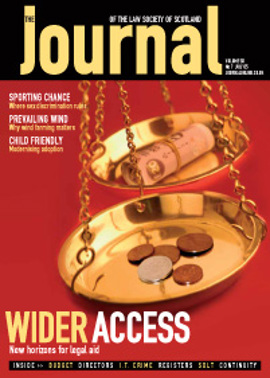Book reviews

EDITORS: JEFFREY N GORDON AND MARK J ROE
PUBLISHER: CAMBRIDGE UNIVERSITY PRESS
ISBN: 0 521 53601 4
PRICE: £21.94
Corporate governance has been a hot topic within the business community and the public sector for a few years now, with significant political and investor focus on how organisations govern themselves. Consequently, lawyers in both private practice and in-house have had to come to terms quickly with the impact of changes in corporate governance, particularly post-Enron, and the legal implications of these changes for their clients.
Much of what has been written about corporate governance has been commentary on the various rules and regulations which make up the corporate governance framework, such as the UK Listing Authority Listing Rules, and for those operating in the United States the Sarbanes-Oxley Act. These have tended to be factual interpretations of what organisations require to do to meet the corporate governance standards being applied. Further, as by its nature corporate governance is a changing landscape, texts have tended to fall into the easily updatable format, to ensure that the information they contain remains current.
It was, therefore, with some reservation that I reviewed what is essentially a collection of academic essays on corporate governance, edited by Jeffrey Gordon, the Alfred W Bressler Professor of Law, Columbia Law School, and Mark J Roe, the Berg Professor of Corporate Law at Harvard Law School. All of the contributors, including Messrs Gordon and Roe, are academics based in US or European universities and none of the essays deal specifically with UK corporate governance issues. Having said that, the essay format does make it easy to pick and choose which of these may be of most relevance for a particular organisation, as although the theme of convergence runs through the book, each essay can be read and understood in isolation. To that extent, the book should not be treated as falling within the “current reference” category I alluded to earlier, but more a broad canvas explaining the background to, and ultimate convergence in, global corporate governance. Taking its starting point as not the US corporate failures of recent memory, but the development of the “manager orientated” business model of the 1950s-60s, the book tracks this through to highlight both the differences between, and similarities in, corporate governance structures in the United States, Europe (principally Germany) and the Far East (principally Japan).
The essays are divided into three main categories covering systemic issues, government players and specific institutions. The systemic issues section deals with broad global issues, such as convergence of corporate governance, which in Part 2 is narrowed down to a consideration of the mechanisms by which convergence might emerge. The final part covers the forces that induce systems of governance, once established, to persist. For readers looking for a broad understanding of global corporate governance issues, Part 1 of the book is the most relevant section, with Parts 2 and 3 being focused on the specific political and institutional issues which arise from a global corporate governance model where interest will depend on whether, for example, the reader has a need to understand corporate governance institutions, as covered in the essay “Cross-shareholding in Japanese Keietsu” by J Mark Ramseffer.
In conclusion, I would recommend that if readers are interested in this topic, they bear in mind my earlier comments on corporate governance remaining an evolving area of law, and read this book now, as the passage of time will inevitably reduce this impact.
Hew Campbell, The Royal Bank of Scotland plc
In this issue
- Commissioner: Public Authorities must do more
- Supporting legal aid
- No country cousins
- Making the money go further
- Adopting a new approach
- Gordon giveth and Gordon taketh away
- A blow for the future
- A Wie hint of change?
- Raising the bar
- The IT crimewave
- The directing mind
- Going through the motions
- Planning in the park
- Always look on the bright side
- Scottish Solicitors' Discipline Tribunal
- Website reviews
- Book reviews
- The race to the registers revisited
- SDLT: getting it right
- SDLT: barcoding
- Business sense






